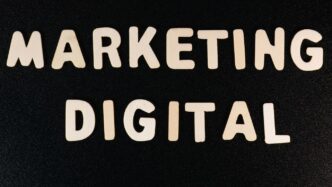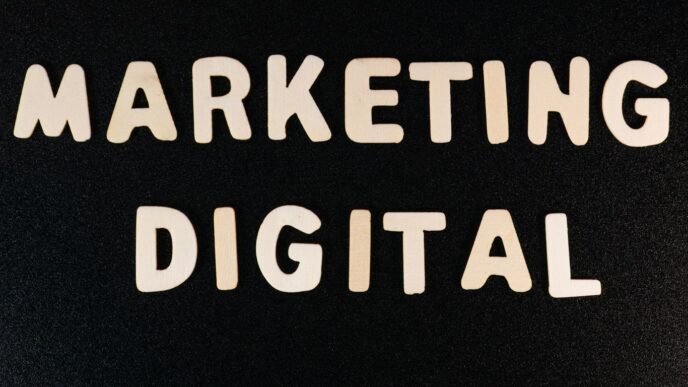As we look towards 2025, Microsoft careers are shaping up to be more exciting than ever. With technology evolving rapidly, new roles and opportunities are popping up across various fields. Whether you’re a seasoned tech pro or just starting out, there’s a lot to explore in the world of Microsoft careers. This guide will walk you through the different paths available, the importance of certifications, emerging trends, and how to stay competitive in the job market.
Key Takeaways
- Microsoft offers diverse career paths in software development, cloud computing, and cybersecurity.
- Earning Microsoft certifications can enhance your job prospects and validate your skills.
- AI, data science, and remote work are key trends shaping future job opportunities.
- Continuous learning through training programs and self-guided resources is essential for career growth.
- Networking through tech communities and events can open doors to new opportunities.
Exploring Microsoft Careers in Technology
Okay, so you’re thinking about a tech career at Microsoft? Awesome! There are a ton of different paths you can take, and honestly, it can be a little overwhelming to figure out where to start. Let’s break down some of the big areas where Microsoft is hiring and what kind of roles you might find there.
Roles in Software Development
Software development is the backbone of Microsoft. It’s where the magic happens, where ideas turn into actual products and services. You’ve got your classic software engineer roles, of course, working on everything from Windows to Office to Xbox. But it’s way more diverse than that. There are front-end developers, back-end developers, full-stack developers, mobile app developers… the list goes on. And within each of those, you can specialize even further. Like, are you into UI/UX? Or maybe you’re more of an algorithms person? The possibilities are pretty endless. Plus, Microsoft is always working on new stuff, so you’ll never be bored. If you want to enhance your skills, consider Microsoft skilling opportunities.
Opportunities in Cloud Computing
Cloud computing is HUGE, and Microsoft is a major player with Azure. If you’re into cloud stuff, you could be a cloud architect, designing and implementing cloud solutions for businesses. Or maybe a cloud engineer, actually building and maintaining those systems. There are also roles in cloud security, making sure everything is safe and protected. And with Azure constantly evolving, there’s always something new to learn. Getting an Azure certification can really boost your career in this area. It shows employers you know your stuff and can handle the challenges of cloud computing.
Careers in Cybersecurity
With everything moving online, cybersecurity is more important than ever. Microsoft has a ton of roles in this area, from security engineers to security analysts to incident responders. You’ll be working to protect Microsoft’s systems and data, as well as helping customers stay safe. It’s a challenging field, but it’s also incredibly rewarding. You’re basically a digital superhero, fighting off the bad guys and keeping everyone safe. And let’s be real, who doesn’t want to be a superhero? Intuit Canada is also looking for people to help with innovation efforts.
The Importance of Microsoft Certifications
Microsoft certifications are a big deal. They show you know your stuff and can seriously boost your career. It’s not just about having a piece of paper; it’s about the knowledge and skills you gain along the way. Let’s get into why they matter.
Types of Microsoft Certifications
Microsoft offers a bunch of certifications, each focused on different areas. You’ve got your fundamental certs, which are great for beginners. Then there are associate and expert-level certs for more experienced folks. And don’t forget the specialty certifications, like those for Azure solutions or security. Picking the right one depends on your job role and what you want to achieve. For example, if you’re aiming to be a database administrator, a data management certification is the way to go.
Benefits of Certification
Getting certified can open doors to better job opportunities and higher pay. It proves to employers that you have the skills they need. Plus, it helps you stay up-to-date with the latest technologies. Here’s a quick look at some of the benefits:
- Increased job prospects
- Higher earning potential
- Improved skills and knowledge
- Greater credibility with employers
- Access to a global community of professionals
How to Prepare for Certification Exams
Preparing for these exams takes effort, but it’s doable. Start by understanding the exam objectives. Microsoft usually provides a detailed outline of what you need to know. Then, use a mix of training materials, like online courses, practice exams, and hands-on labs. Don’t underestimate the power of practice! Also, consider joining a study group or finding a mentor. It helps to have someone to bounce ideas off and get support from. Make sure you understand the exam structure, the number and types of questions, and the scoring system. Investing time and effort in Microsoft Azure certification is a strategic way to future-proof your career.
Emerging Trends in Microsoft Careers

It’s a wild time in the tech world, and Microsoft careers are definitely feeling the shift. Things are changing fast, and knowing what’s coming can give you a serious edge. Let’s look at some of the big trends shaping Microsoft jobs right now.
AI and Machine Learning Roles
AI and machine learning are exploding, and Microsoft is right in the middle of it. This means tons of new roles are popping up. We’re not just talking about researchers; think about AI engineers, data scientists specializing in AI, and even project managers who understand how to bring AI products to life. Companies are investing big in training programs to meet the demand, so now is the time to get involved. For example, you can engage Copilot within Microsoft Outlook for faster, more accurate searching of emails and related attachments.
Data Science Opportunities
Data is king, and Microsoft knows it. Data scientists are needed everywhere, from Azure to Xbox. It’s not just about crunching numbers; it’s about telling stories with data and helping Microsoft make smarter decisions. Expect to see more roles focused on data visualization, machine learning model deployment, and even data ethics.
Remote Work and Flexibility
Remote work is here to stay, and Microsoft is embracing it. This opens up opportunities for people who want to work from anywhere. But it also means you need to be good at collaborating remotely and managing your time effectively. Microsoft is investing in tools and technologies to make remote work easier, but it’s up to you to make it work for you. Frontier Firm workers exhibit greater optimism about future job opportunities, with 93% expressing confidence compared to 77% globally.
Here’s a quick look at how remote work is changing things:
- More flexible hours
- Increased focus on outcomes, not just hours worked
- Greater need for strong communication skills
Microsoft is also offering more flexible work arrangements, like hybrid models, so you can find something that fits your lifestyle.
Skilling and Upskilling for Microsoft Careers
It’s no secret that the tech world moves fast. To stay competitive in Microsoft careers, continuous learning is key. Companies are looking for people who are not only skilled today but also ready to learn new things tomorrow.
Training Programs and Workshops
Microsoft and its partners provide a ton of training programs. These aren’t just boring lectures; they’re hands-on workshops designed to get you ready for real-world situations. For example, the Partner Project Ready Workshops help developers and data scientists prepare for customer needs. You can find workshops focused on Azure, Business Applications, Modern Work, and Security. These events help you learn how to figure out what customers need and then actually build Azure solutions for them.
Self-Guided Learning Resources
Not everyone learns best in a classroom. That’s why self-guided learning is so important. Microsoft offers a bunch of resources you can use to learn at your own pace. These include online courses, documentation, and even virtual labs where you can practice your skills. This flexibility is great for people who have busy schedules or prefer to learn independently. Plus, you can often find free or low-cost options to get started.
Industry-Specific Training
Generic tech skills are good, but industry-specific knowledge is even better. Microsoft offers training tailored to different industries, like financial services or healthcare. This kind of training helps you understand the unique challenges and opportunities in those fields, making you a more valuable asset to potential employers. Some popular areas include:
- AI for Sustainability
- AI for Financial Services
- AI for Healthcare
Networking and Community Engagement
Networking is super important, especially in the tech world. It’s not just about collecting business cards; it’s about building real connections that can help you grow your career at Microsoft. Think of it as planting seeds – you never know which connection will blossom into a great opportunity.
Joining Microsoft Tech Communities
Microsoft has a ton of tech communities, both online and offline. These groups are awesome for connecting with other people who are passionate about the same things you are. Participating in these communities can give you access to insider knowledge, mentorship opportunities, and even job leads. It’s a great way to stay updated on the latest trends and technologies, plus you can learn a lot from others’ experiences. Check out the Microsoft Partner Community for more information.
Participating in Events and Conferences
Microsoft hosts and participates in a bunch of events and conferences every year. These events are perfect for meeting people face-to-face, attending workshops, and hearing from industry leaders. I went to Microsoft Ignite last year, and it was a game-changer. I met so many interesting people and learned about new technologies that I wouldn’t have otherwise. Plus, many events have career fairs where you can talk directly to recruiters. Here’s a quick rundown of some common event types:
- Tech Summits: Focus on specific technologies, like Azure or AI.
- Industry Conferences: Geared towards specific industries, like healthcare or finance.
- Internal Microsoft Events: Sometimes open to the public, offering a glimpse into the company culture and projects.
Leveraging LinkedIn for Career Growth
LinkedIn is your friend. Seriously, if you’re not using LinkedIn to its full potential, you’re missing out. Make sure your profile is up-to-date and highlights your skills and experience. Connect with people who work at Microsoft, join relevant groups, and participate in discussions. Don’t be afraid to reach out to people directly – a polite message can go a long way. Also, keep an eye out for job postings and apply directly through LinkedIn. It’s a great way to get your foot in the door. You can also follow Windows 365 Community for weekly newsletters.
Diversity and Inclusion in Microsoft Careers
Microsoft is making a real push for diversity and inclusion, and it’s not just talk. They’re putting programs and initiatives in place to make sure everyone has a fair shot. It’s about creating a workplace where people from all backgrounds feel welcome and can thrive. Honestly, it’s a big deal, and it’s changing the company culture for the better.
Initiatives for Underrepresented Groups
Microsoft has a bunch of specific programs aimed at helping people from underrepresented groups get into tech and advance their careers. For example, the Neurodiversity Hiring program is designed to bring in talented individuals who think differently. There are also initiatives focused on women in tech, people of color, and veterans. These programs often include mentorship, training, and networking opportunities. It’s all about leveling the playing field and giving everyone a chance to succeed.
Creating Inclusive Work Environments
It’s not enough to just hire a diverse workforce; you have to create an environment where everyone feels like they belong. Microsoft is working on this by offering diversity and inclusion training for employees, promoting inclusive leadership, and creating employee resource groups (ERGs). These ERGs provide a space for people with shared identities or interests to connect and support each other. The goal is to make sure everyone feels valued and respected, regardless of their background.
Benefits of Diverse Teams
Diverse teams aren’t just the right thing to do; they’re also good for business. Studies have shown that diverse teams are more innovative, creative, and better at problem-solving. When you have people with different perspectives and experiences working together, you get a wider range of ideas and a better understanding of your customers. Plus, a diverse and inclusive workplace can attract and retain top talent. It’s a win-win for everyone.
Here’s a quick look at some of the benefits:
- Increased innovation
- Better problem-solving
- Improved employee engagement
- Stronger company reputation
Future Outlook for Microsoft Careers
Job Market Predictions
Okay, so what’s the deal with Microsoft jobs in the near future? Well, things are looking pretty good, actually. The demand for skilled tech professionals isn’t slowing down anytime soon. Microsoft is still a major player, and with their fingers in so many pies (cloud, AI, gaming, you name it), there are going to be plenty of opportunities. We’re talking about a steady climb in available positions, especially for those with specialized skills. Think about it: more cloud adoption means more need for Azure experts, and the AI boom? That’s just getting started. Keep an eye on Microsoft 365 capabilities – they’re always evolving.
Skills in Demand for 2025
If you want to make yourself super attractive to Microsoft recruiters, focus on these skills:
- AI and Machine Learning: No surprise here. Get cozy with things like TensorFlow, PyTorch, and Azure Machine Learning.
- Cloud Computing (especially Azure): Azure is Microsoft’s baby, so deep knowledge of its services is a must. Learn about cloud architecture, security, and deployment.
- Cybersecurity: With threats getting more sophisticated, security pros are always in demand. Think about certifications like Certified Azure credentials.
- Data Science and Analytics: Being able to wrangle data and turn it into insights is huge. Brush up on your SQL, Python, and data visualization skills.
- DevOps: The ability to streamline software development and deployment is super valuable. Learn about CI/CD pipelines, automation, and infrastructure as code.
Preparing for Future Opportunities
So, how do you get ready for all this? It’s all about continuous learning and staying adaptable. Here’s the game plan:
- Upskill and Reskill: Don’t get stuck in your ways. Take courses, attend workshops, and get certifications in the areas that are hot right now. Microsoft Learn is your friend.
- Network, Network, Network: Get involved in tech communities, attend conferences, and connect with people on LinkedIn. You never know where your next opportunity will come from.
- Build a Portfolio: Show off your skills with personal projects, contributions to open-source projects, and any other work that demonstrates your abilities. A solid portfolio speaks volumes.
- Stay Curious: The tech world is constantly changing, so keep learning and experimenting with new technologies. Read blogs, listen to podcasts, and follow industry leaders on social media. Keep up with Microsoft skilling offerings to stay ahead of the curve.
Final Thoughts on Microsoft Careers in 2025
As we wrap up this guide, it’s clear that Microsoft careers in 2025 are filled with potential. The tech landscape is changing fast, and Microsoft is at the heart of it. Whether you’re just starting out or looking to switch gears, there are plenty of paths to explore. The key is to stay curious and keep learning. With the right skills and mindset, you can find a role that not only fits your interests but also contributes to the future of technology. So, take that leap, dive into the resources available, and get ready to make your mark in the Microsoft world!
Frequently Asked Questions
What types of jobs can I find at Microsoft?
Microsoft offers many jobs in tech, such as software development, cloud computing, and cybersecurity.
Do I need a degree to work at Microsoft?
While many jobs prefer a degree, Microsoft also values skills and experience, so there are paths for everyone.
How can Microsoft certifications help my career?
Certifications show that you have the skills needed for specific jobs, making you more attractive to employers.
What are some emerging fields in Microsoft careers?
Fields like AI, machine learning, and data science are growing and offer many job opportunities.
How can I prepare for Microsoft certification exams?
You can study through official Microsoft courses, practice tests, and self-guided resources.
What is Microsoft’s approach to diversity and inclusion?
Microsoft actively promotes diversity by creating programs for underrepresented groups and fostering inclusive workplaces.














